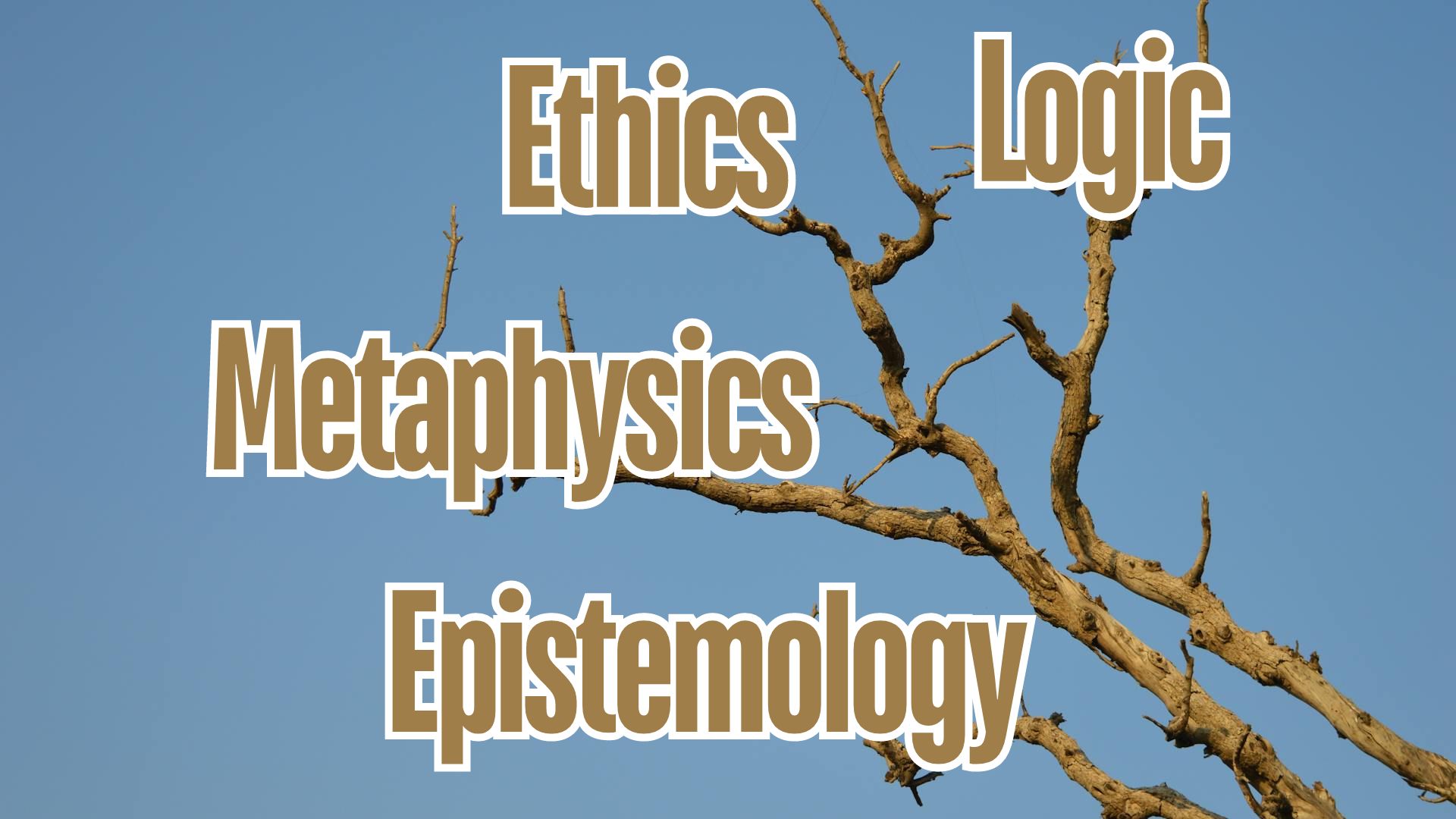Philosophy is not just the way to think about life and the living. It is much more than that. The various branches of philosophy help us understand how the world around us works but also provides a moral and ethical ground for us to stand on. What are the main branches of philosophy? We will answer that in this piece.
Every organization, every person or entity well versed in philosophical arguments have their own count of how many branches of philosophy there are. However, the most commonly accepted number is four or five depending on the entity. Most of the population is aware of the four main branches of philosophy and for the sake of simplicity, we will go with four.
What Are The Main Branches Of Philosophy?

There are four main branches of philosophy, each one dealing with a different category of knowledge required to be well-versed in philosophical debates. These four are the core branches of philosophy while the rest of the branches stem from these or are categorized as a different sub-field.
- Epistemology
- Metaphysics
- Ethics
- Logic
These are the main branches of philosophy and each of them dive deeper into realms of knowledge that humans do not ponder in every day life. Aside from these four branches, other branches are also quite popular. They include aesthetics, philosophy of science, philosophy of mind, philosophy of language, philosophy of religion etc.
Explaining The Core Branches Of Philosophy
The point of philosophy is to question everything and answer those questions using facts and figures obtained from research and study. Everything under the observable and unobservable universe is under questioning when it comes to philosophy and knowing the branches is important if one wants to dissect everything into digestible bites.
Only when you know more about the core branches of philosophy will you learn more about the various sub-categories that this subject has to offer. In the upcoming sections, I will briefly explain to you what each of the core branches are and how you can get started reading up on them.
Epistemology: The Study Of Knowledge

Epistemology is the study of knowledge. It explores anything and everything related to knowledge including its origins, structure, methods, and validity. In regards to knowledge, there are certain questions that are prompted to explore the far reaches of Epistemology. Some examples of those questions are:
- What is knowledge?
- How is knowledge acquired?
- Can we truly know anything?
The relationship between belief and truth is explored in this branch.
Metaphysics: The Study Of Reality And Existence

Metaphysics is the study of reality and the purpose of existence. It questions and attempts to answer why and how certain things exist and the meaning behind those things existing. Topics like the nature of objects, properties, space and time, causality, and possibility are explored in this core branch.
The ones studying metaphysics study the relationship between mind and matter, the concept of identity and change, and the structure of the universe.
Ethics: The Study Of Right And Wrong

Ethics is the study of morality and answering whether things are right or wrong. This branch explores questions related to morally good, bad or grey areas and attempts to find a answer to them.
There are some key areas in this study which are quite interesting. Those are normative ethics (which answers how one ought to act), meta-ethics (which explores the nature of ethical properties and judgments), and applied ethics (which addresses specific moral issues, such as medical ethics and environmental ethics).
Logic: The Study Of Reason

Finally, we have the study of reason in logic. Logic deals with arguments and their structure and distinguishes between valid and invalid forms of reasoning. The sub-fields of this particular core of philosophy include symbolic logic, formal logic, and informal logic. Even aside from philosophy, logic is important in daily life to make critical decisions.
Reading List
If you want to read up on any of these core branches then I suggest the following books for each of these.
For Epistemology,
- “Epistemology: A Contemporary Introduction to the Theory of Knowledge“ by Robert Audi“
- An Introduction to the Theory of Knowledge” by Noah Lemos
- “The Problems of Philosophy” by Bertrand Russell
For Metaphysics,
- “Metaphysics: A Contemporary Introduction” by Michael J. Loux
- “A Survey of Metaphysics” by E.J. Lowe
- “Being and Time” by Martin Heidegger
For Ethics,
- “Nicomachean Ethics” by Aristotle
- “Groundwork for the Metaphysics of Morals” by Immanuel Kant
- “Ethics: A Contemporary Introduction” by Harry J. Gensler
- “Utilitarianism” by John Stuart Mill
For Logic,
- “Introduction to Logic” by Irving M. Copi and Carl Cohen
- “A Concise Introduction to Logic” by Patrick J. Hurley
- “Logic: A Very Short Introduction” by Graham Priest
Over To You
Those are the main branches of philosophy you need to know about. Aside from that, reading up on the core branches using the aforementioned books should be a good start to get into philosophy.
Should you be interested, check out the Philosophy section of The Introverted Bubble for more philosophical topics.
